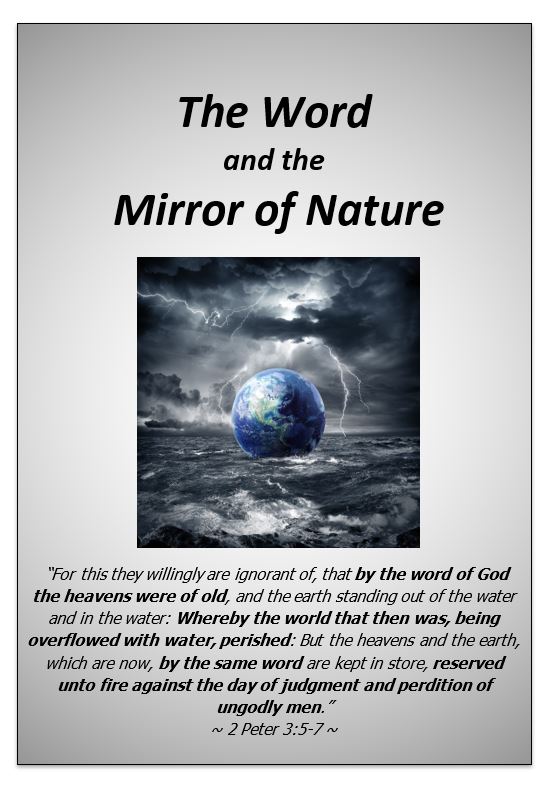Leroy Froom’s Doctrine of Sheer Merit
I have often pondered about the man Leroy Froom. In my earlier years I was amazed at his sheer volume of output in the volumes of the Prophetic Faith of Our Fathers and the Conditionalist Faith of Our Fathers. The volumes sat proudly on my bookshelf as they had to be considered one of the icons of any serious-minded Adventist.
When I began to study the history of the 1888 message and traced it up to the account given by Leroy Froom in Movement of Destiny, doubts began to enter my mind about some of things that he was saying about the message and the claims he made about it. I have since learnt many things from reading his works, letters and interactions with other Adventist leaders.
I recently was doing some research through the Review on articles by Leroy Froom. I could not help but feel a sense of warmth and connection to the sincerity and commitment of this man seeking to advance the Third Angel’s Message. I struggled to understand the path that he took and why he did some of the things he did, until I came across an article that he wrote in the Review and Herald in 1923. It contained so many red flags, that I felt I could have opened a fabric shop. I was astounded at what I read. Rather than describe it to you, I will let you read for yourself the deeply troubling principles he advocated and mentors he considered worthy of emulation.
Right Choice Early
RH Sep 13 1923
LEROY EDWIN FROOM
CHOOSE the highest ideals, and never swerve from your endeavor to live them out. Have the loftiest principles, and maintain a lofty adherence thereto. You know the good is often the enemy of the better, and the better, of the best. And, young men and young women, aim high. Never be content to be ciphers, or near ciphers, but determine to climb through sheer merit. And think not you must wait until the years have put a crown of gray upon your head before you attempt things worthwhile. Scores of the outstanding leaders of history were comparatively young at the time of their loftiest achievements. And remember, what has been done, can be done again.
William Pitt, at twenty-one chancellor of the British ex-chequer, was prime minister of England at twenty-four; and his name is engraved on the French mind as one whose genius was nearly as potent as Napoleon's guns. Grotius, at twenty-four attorney-general of the Netherlands, was the most noted public man of the seventeenth century, and called the greatest intellect of his age. Newton at twenty-five discovered the most universal of all laws,— gravitation. Galileo at twenty-five published his essay on hydrostatic balance. Hannibal at twenty-six was in sole command of the Carthaginian armies, and Borne trembled.
At twenty-seven, Napoleon had crossed the Alps on his Italian campaign, and out generaled and defeated one after another of the veteran marshals of Austria. Calvin at twenty-seven published his "Institutes," the document having the most powerful influence of any issued during the Reformation. At twenty-seven, Henry V gained the battle of Agincourt. Michael Angelo, greatest of all artists, produced his greatest works before he was twenty-nine; and think of the rich legacy he left! At thirty, Charlemagne was master of France and Germany. At thirty, Cortez, the redoubtable explorer, Iaid eyes on the golden cupolas of Mexico. At thirty, Themistocles led the Greek fleet to victory at Salamis. At thirty, Kepler was appointed imperial mathematician. At thirty-one, Richelieu was secretary of state for France.
At thirty-two, Watt invented the condensing steam engine, revolutionized the transportation of the world. At thirty-two Clive established British power over India. Alexander died at thirty-three, master of an empire covering two and one-half million square miles. Mozart, the Shakespeare of composers, died at the age of thirty-six. Lord Byron and Raphael both died at the age of thirty-seven.
Innocent III, greatest of Roman pontiffs during the peak of the Papacy's power, was elevated to the papal throne at the age of thirty-seven. Luther, before he was thirty, organized the mightiest movement of modern times, and at thirty-five defied the thunders of the Vatican, as he nailed on the door of the church at Wittenberg the ninety-five theses that laid the foundation for the Reformation.
And supremest of all, is the shining example of Christ Himself, our radiant pattern in the majestic, heights of both character and service, and who completed the greatest task in the universe since the fall of man, at the age of thirty-three.
Be a miniature of our great Example. Let history repeat itself in your life. Throw now youth's fresh, glowing ardor into the battle for truth.
There is certainly nothing wrong with having high ideals and lofty principles but it is the next few sentences that speak of a terrible tragedy waiting to happen in the life of young Leroy Froom. He states:
Never be content to be ciphers, or near ciphers, but determine to climb through sheer merit.
Consider the two key words cipher and merit. A cipher means “zero, nothing, something of no worth or value.” Merit means “claim to respect and praise; excellence; worth; something that deserves or justifies a reward or commendation.”
This little sentence armed with a knowledge of the life and deeds of Leroy Froom says volumes. He states very clearly that he would never be content to be nothing or something of no worth but would, through hard work and effort, become someone worthy of respect, praise, that justifies a reward. The principle set forth is far removed from the meek and lowly Jesus and His disciples who were content in whatever state they were in. It becomes quite clear that Leroy Froom was determined to win the praise and respect of as many as possible through his sheer effort. It becomes apparent that the praise of his Adventist family would not be enough, he would need to extend this to the wider protestant community and therefore desperately sought to drag Adventism into a bigger pond where a greater praise was to be had. In speaking of his dialog with Walter Martin, Froom comments to R.R Figuhr:
“I do not know where this will lead but I do know that we have won friends in a powerful circle.” – Letter to R.R Figuhr April 26 1955
Why does an Adventist minister consider men who believe in eternal Hell, Sunday and several other false teachings as powerful? In what way are they powerful? How can these men from these Protestant churches be considered powerful? Certainly not in a Biblical sense! Is this part of winning the praise of men through sheer merit? Maybe this is the power he is meaning.
The article by Froom leaves us in no doubt about the type of power he was meaning. It is found in the names of mentors that he lists. While some men are worthy of mention and offer some traits worthy of emulation, some names are very concerning.
Why list Charlemagne, Napoleon, Alexander the Great, Hannibal and Henry V as men worthy of mention. What power did they wield? Is this the type of power that Leroy Froom was seeking? I can understand the mention of Luther in some respects and Calvin, but to mention these names at the expense of James White who led 1000 souls to Christ aged 21 and J.N Andrews who could read several languages in his teens. Would not these be better examples to follow?
Where are the Bible characters? Where are the Adventist pioneers? His list says a lot about the man and the kind of power he is seeking. Then I came across a name I had to read several times. “Innocent III, greatest of Roman pontiffs during the peak of the Papacy's power.” Now, this is completely crazy. Leroy Froom lists Innocent III as a man worthy of emulation in seeking power at a young age. Are we aware of the deeds of Innocent III? Leroy Froom certainly knew of this man. Maybe if he had read more of our pioneers and historians he would know that Innocent III was one of the most evil men ever to walk this earth. I will let our pioneers tell you some of the story.
He "shall wear out the saints of the Most High." We write in the spirit of "malice toward none" and "charity for all." Yet in a faithful exposition of prophecy it is essential to present the true and unimpeached facts of history. Among many others, the Waldenses and Albigenses, who would not yield to the decrees and teachings of Rome, were systematically and ruthlessly suppressed. Through the centuries numerous edicts were issued from the Eternal City, of which the following from Pope Innocent III is an example:
"We give you a strict command that, by whatever means you can, you destroy all these heresies and expel from your diocese all who are polluted with them. . . . They may not appeal from your judgments, and if necessary, you may cause the princes and people to suppress them with the sword."—- Edict of Pope Innocent III concerning Heretics, quoted in Source Book for Medieval History, by Oliver J. Thatcher and Edgar H. McNeal, p. 210. – R.F Cottrell – RH Jan 24, 1945 – Heretics Destroyed.
Did Leroy Froom take into consideration that Innocent III destroyed Sabbath keepers and put them to the sword?
The Roman Catholic Church, with all its ramifications throughout the world, forms one vast organization under the control, and designed to serve the interests, of the papal see. Its millions of communicants, in every country on the globe, are instructed to hold themselves as bound in allegiance to the pope. Whatever their nationality or their government, they are to regard the authority of the church as above all other. Though they may take the oath pledging their loyalty to the state, yet back of this lies the vow of obedience to Rome, absolving them from every pledge inimical to her interests.
History testifies of her artful and persistent efforts to insinuate herself into the affairs of nations; and having gained a foothold, to further her own aims, even at the ruin of princes and people. In the year 1204, Pope Innocent III extracted from Peter II, king of Arragon, the following extraordinary oath: "I, Peter, king of Arragonians, profess and promise to be ever faithful and obedient to my lord, Pope Innocent, to his Catholic successors, and the Roman Church, and faithfully to preserve my kingdom in his obedience, defending the Catholic faith, and persecuting heretical pravity." --John Dowling, The History of Romanism, b. 5, ch. 6, sec. 55. This is in harmony with the claims regarding the power of the Roman pontiff "that it is lawful for him to depose emperors" and "that he can absolve subjects from their allegiance to unrighteous rulers."--Mosheim, b. 3, cent. 11, pt. 2, ch. 2, sec. 9, note 17. (See also Appendix note for page 447.) And let it be remembered, it is the boast of Rome that she never changes. The principles of Gregory VII and Innocent III are still the principles of the Roman Catholic Church. And had she but the power, she would put them in practice with as much vigor now as in past centuries. – Ellen White – GC 580,581.
The pen of inspiration points to Innocent III as a symbol of the essential principles of Rome. Did Leroy Froom not know this? Did he not have access to the book Great Controversy?
As in Christ is embodied and manifested the "mystery of godliness (1 Ti m. 3: 16), so on the other hand, in anti-christ is embodied and manifested the "mystery of iniquity." 2 Thess. 2: 7. As in Christ, from whatever point we view him, we behold only godliness; so in the papal system, from whatever point we view it, we behold only iniquity, more than in any other system the world has seen. Whether it be viewed in its representative popes, such as Innocent III, crushing out heresy with fire and sword, deposing kings, trampling upon nations, filling Europe with bloodshed and woe. – AT Jones – RH Feb 13 1883.
A.T. Jones seemed able to distinguish the different spirit that motivated Innocent III from the Spirit of Christ. Leroy Froom put both in the same list not distinguishing them in any way. Was this simple blindness of Froom’s part?
Pope Innocent III writes: "He [Christ] hath set one man over the world, him whom he hath appointed his vicar On earth; and as to Christ is bent every knee in Heaven, in earth, and under the earth, so shall obedience and service he paid to his vicar by all, that there may be one fold and One shepherd.” – RH Feb 8 1870.
Was Leroy Froom unaware that Innocent III did this?
Fifty thousand people surrounded the city of Besiers, effected an entrance, murdered its peaceful inhabitants, rifled their dead bodies, plundered their houses, and laid them in ashes. This was done at the instigation of Pope Innocent III and his horde of blood-hounds. But it seemed right to them to do it. – RH Nov 15 1887.
Are these the kind of deeds worthy of emulation through sheer merit?
The Magna Carta, was visited with the anger of Pope Innocent III. He saw therein a contempt for the Apostolic see. – Elder D.E Lindsey – RH Apr 23 1889.
I cannot conceive in any possible way how Leroy Froom could place Innocent III in a list of men worthy of emulation in any capacity whatever. What is worse is that he puts this evil man in the same list as Jesus Christ describing the work of Jesus as something that he did by sheer merit!
Leroy Froom shows that he knows little about the gospel and how merit is obtained. He shows that he knows little about the 1888 message. Let us remind ourselves what was the heart of this message and where merit comes from.
The Lord in His great mercy sent a most precious message to His people through Elders Waggoner and Jones. This message was to bring more prominently before the world the uplifted Saviour, the sacrifice for the sins of the whole world. It presented justification through faith in the Surety; it invited the people to receive the righteousness of Christ, which is made manifest in obedience to all the commandments of God. Many had lost sight of Jesus. They needed to have their eyes directed to His divine person, His merits, and His changeless love for the human family. All power is given into His hands, that He may dispense rich gifts unto men, imparting the priceless gift of His own righteousness to the helpless human agent. TM 91,92
After reading Leroy Froom’s list of “great men” and their deeds, I want nothing to do with his concepts of where we get merit. We need the divine merit of Christ and I can only receive this by being exactly what Leroy Froom despised – a cipher, nothing, zero, helpless! Laying the glory of man in the dust.
It did not seem to matter to Froom what a man professed as long as he was achieving and seeking power. Whether it was Christ, Luther, Napolean, Innocent III, it was all the same to him. Leroy Froom reveals a love of power regardless of the identity and this is why I believe he was willing to sacrifice the identity of the Son of God to elevate Him to what Froom really wanted to worship – POWER! The identity is irrelevant, only the power matters in the end.
Study the history, read the letters, get the facts and determine what was the guiding principle of this man's life. Is it a principle that blessed or cursed our church?




